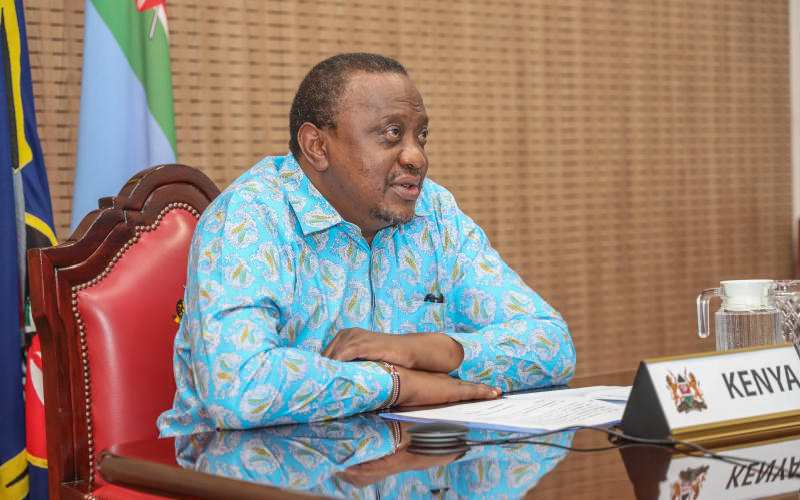×
The Standard e-Paper
Home To Bold Columnists

President Uhuru Kenyatta.
The culmination of Uhuru Kenyatta’s presidency this year coincides with a season when the nation is battling bitter challenges of a global pandemic, political turmoil, uncertainty and economic recess. Despite the ear-piercing decibels of criticism of his tenure, he has also admittedly overseen an era of progress and hope.